Vayakhel 5782 – Not Getting Angry on Shabbos
Join Our Aniyei Eretz Yisroel Purim Campaign Lomdei Torah M’toch Chadchak
Visit YTATorah.org
Shiur presented in 5778
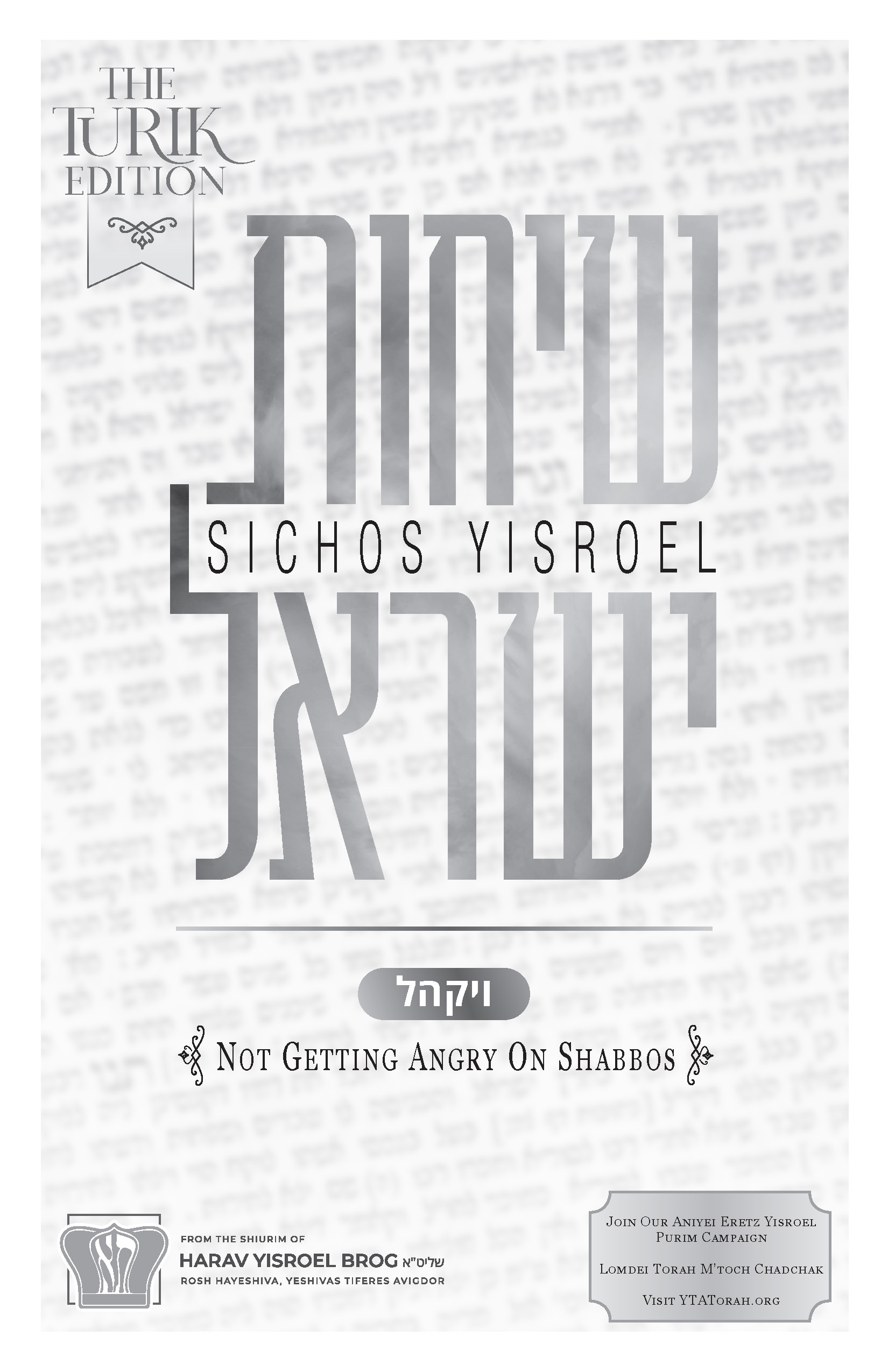
Join Our Aniyei Eretz Yisroel Purim Campaign Lomdei Torah M’toch Chadchak
Visit YTATorah.org
Shiur presented in 5778
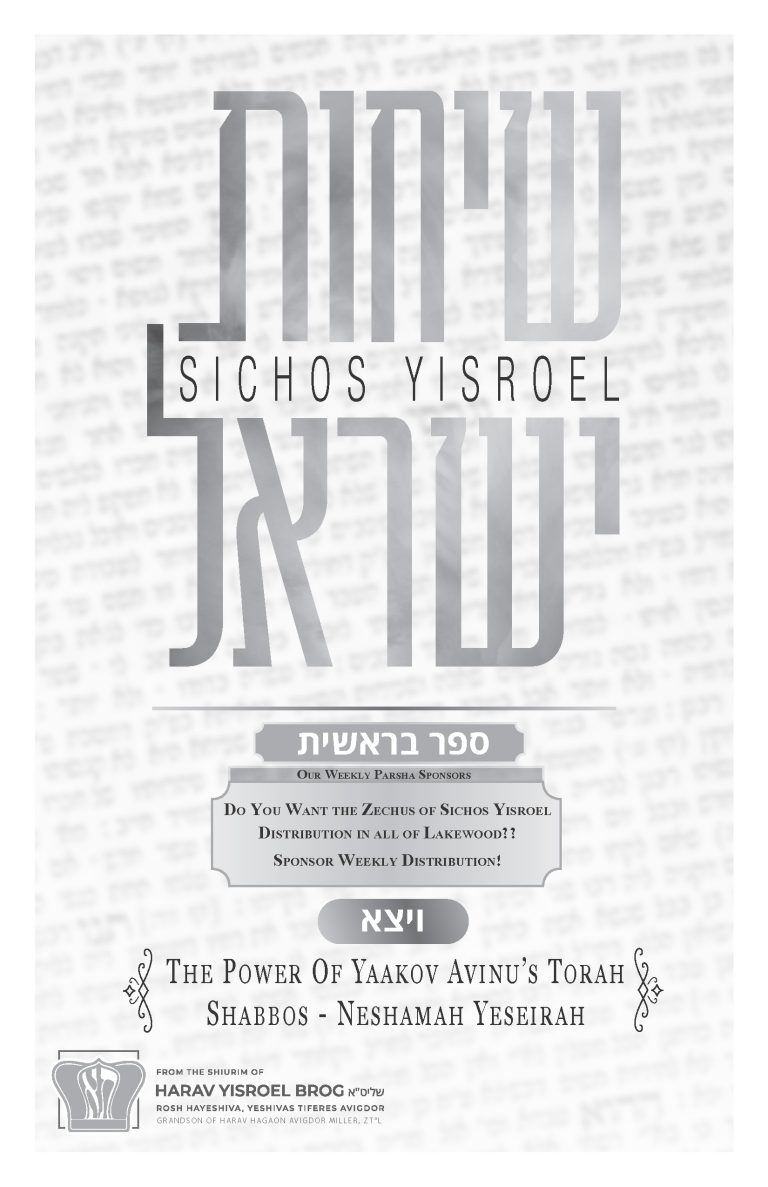
In this week’s parshah, the Torah tells us about Yaakov Avinu, who found himself in double jeopardy. Number one, he hadn’t yet gotten married. He was no youngster anymore. He was in his sixties. So he was an older gentleman already and he was not married. His father had gotten married at the age of 40. So Yaakov Avinu was way over the top. That was one situation he was facing. The second challenge that he was facing was that…
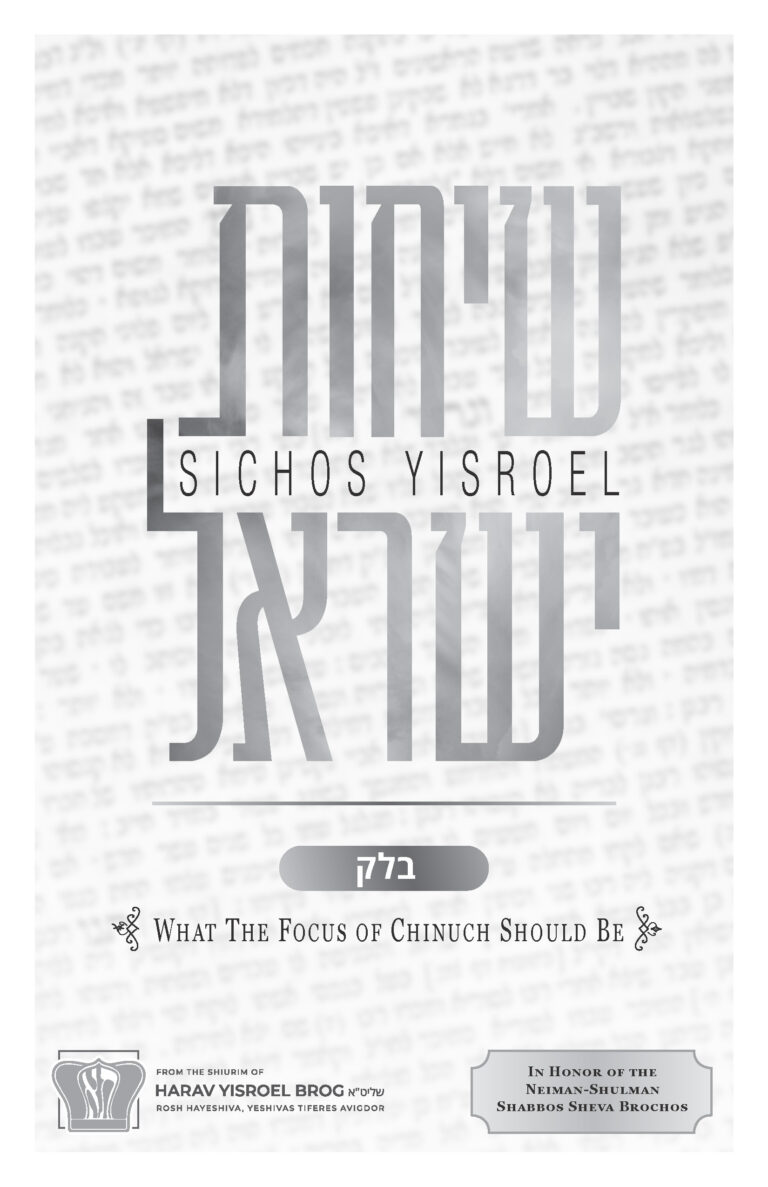
Our parshah depicts a well-known historical figure who represented ideals that weren’t nice. Bilam is considered the father of all bad middos and he’s the counterweight to the father of all good middos, Avraham Avinu. There’s a mishnah in Avos where our Tana’im make this contrast.
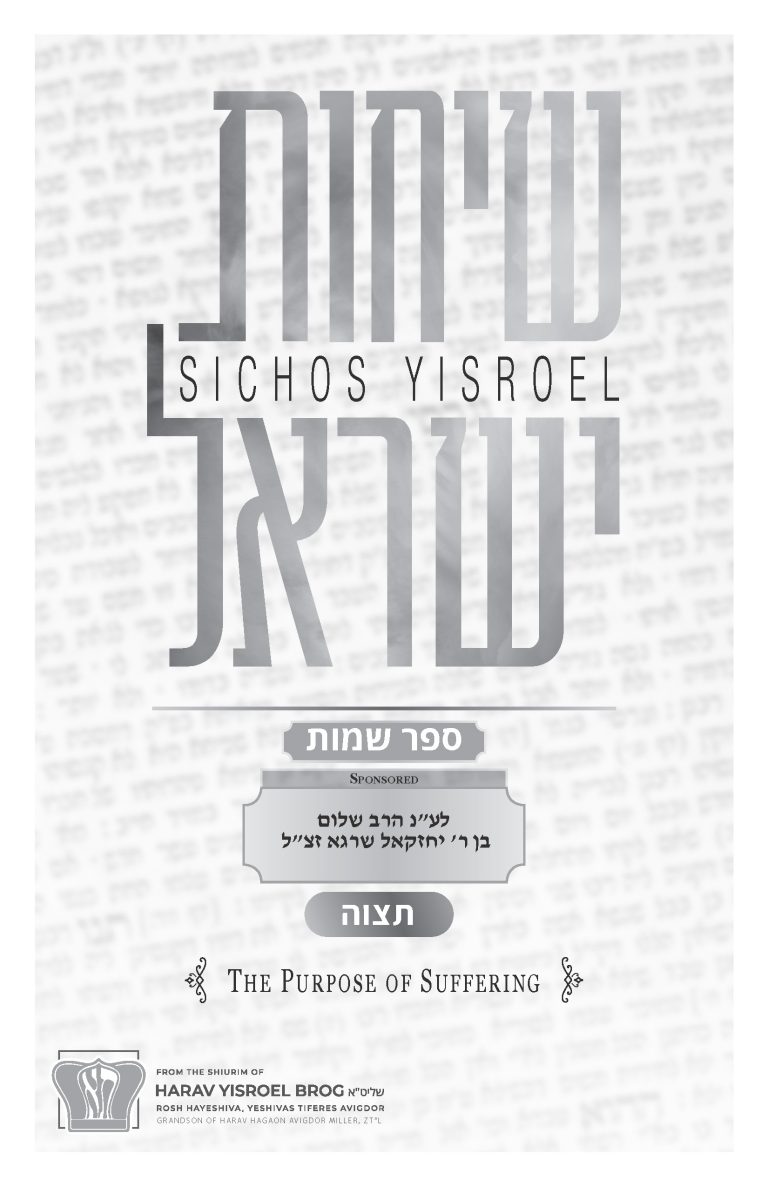
In this week’s parshah, Hakadosh Baruch Hu begins by talking to Moshe Rabbeinu and telling him “You shall command the Bnei Yisrael, and they should take for you, pure olive oil, crushed, for the lighting.” (Shemos 27:20)…Why when it’s talking about the olive oil for the menorah it says they should take ‘for YOU’?
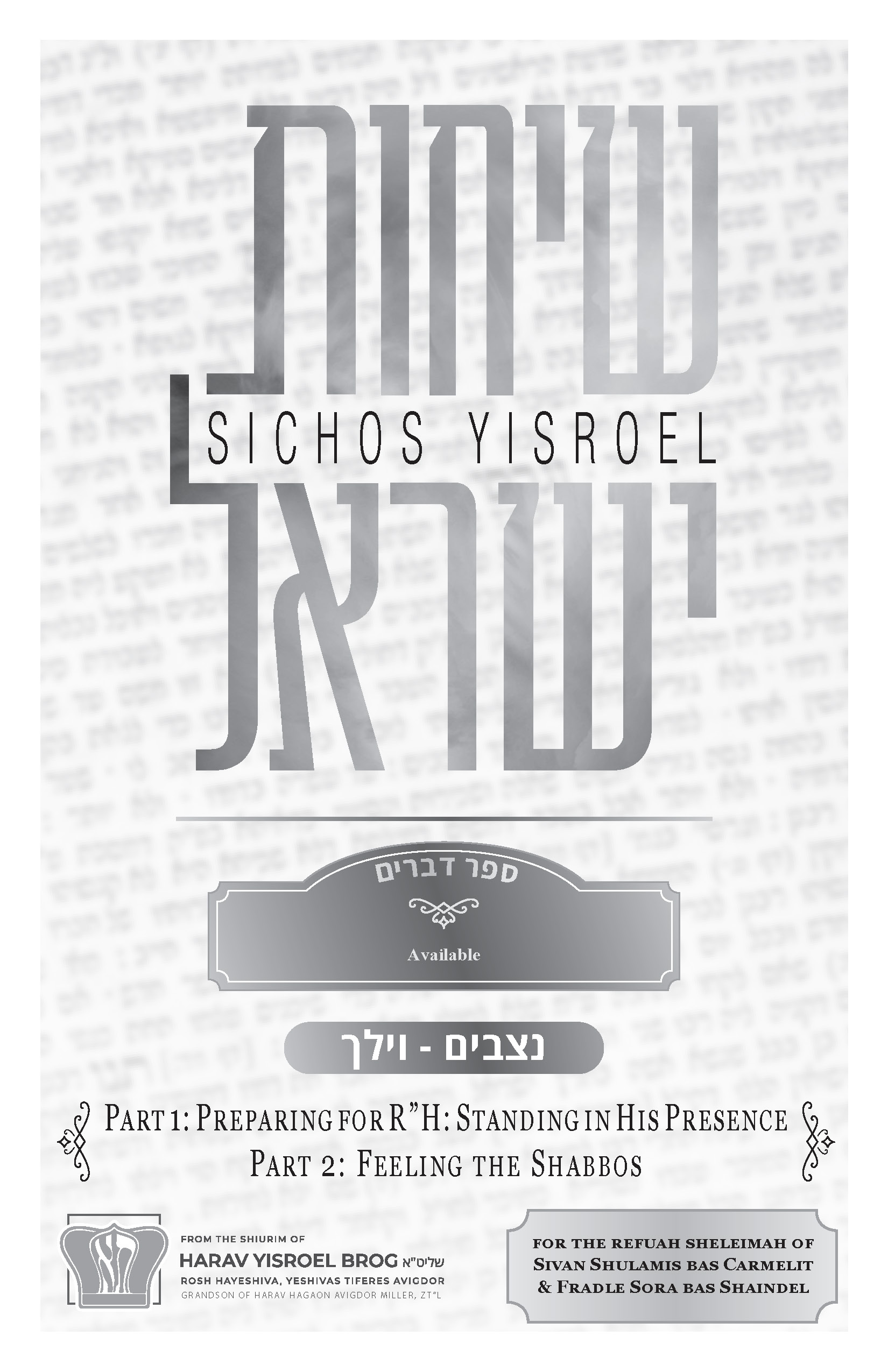
Our parshah begins with the following words “You stand this day, all of you, before Hashem – your tribal heads, your elders and your officials, all the men of Israel.” A few pesukim later, Rashi brings a Midrash Tanchuma which explains the connection between Parshas Nitzavim and KiSavo, which had the curses. What is the connection between the curses…and the statement of “You stand this day”?
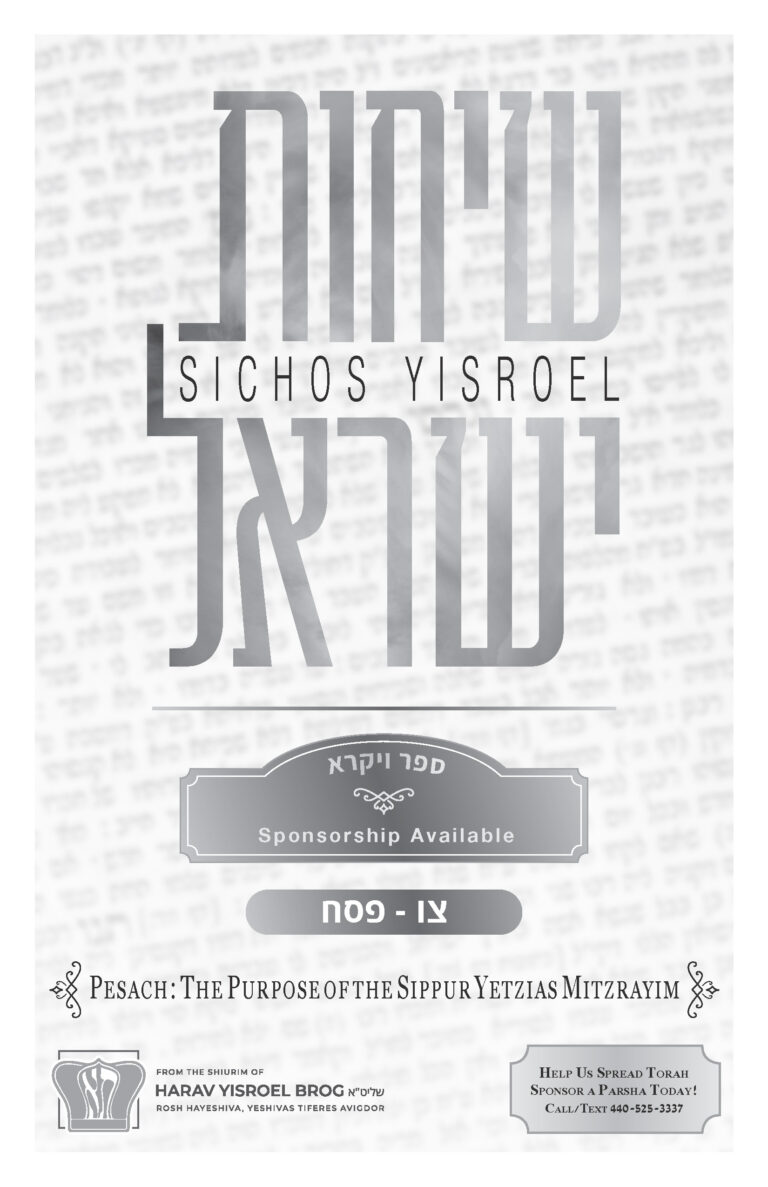
The big mitzvah on Pesach is the Mitzvah of the Sippur Yetzias Mitzrayim. We must know and understand what is the purpose of this night. Why do we make such a big fuss about repeating the same story of Yetzias Mitzrayim every single year? So if you are still not sure, listen carefully, because you’ve been doing it for so many years already and it’s a good idea to know why you are doing it.
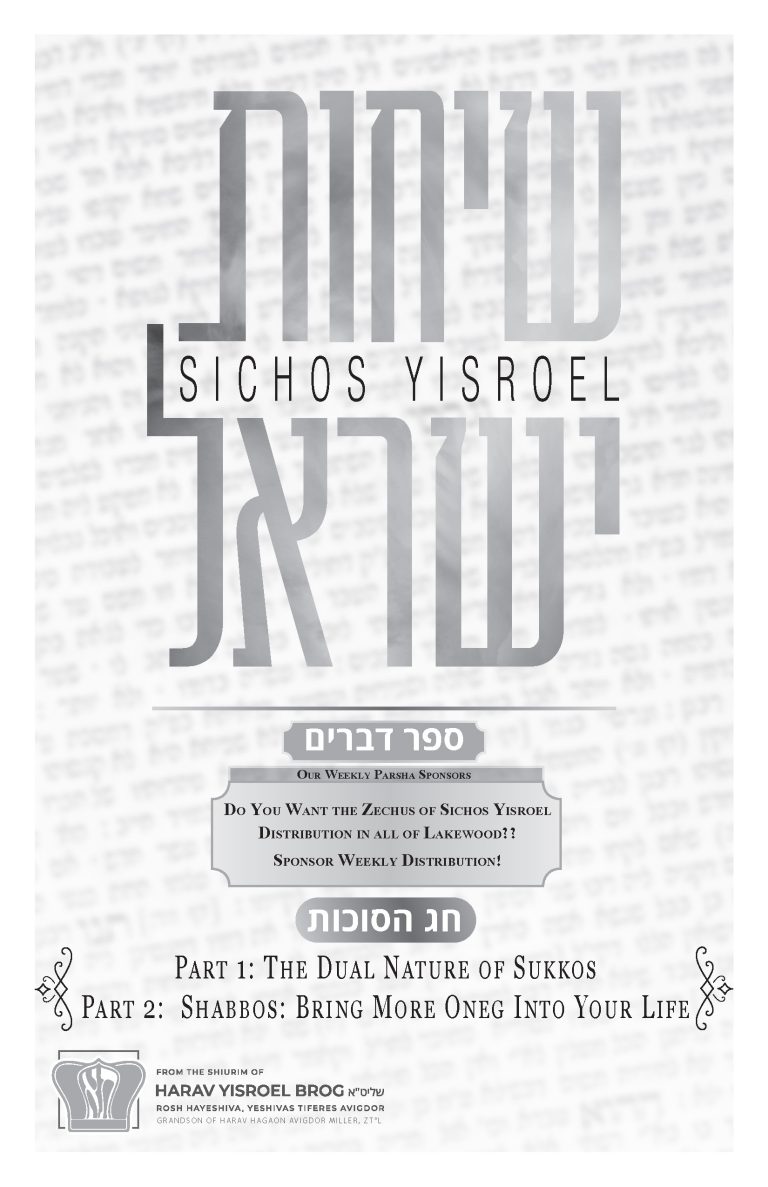
Let us take a look at the end of Parshas Emor where the Torah discusses the Yom Tov of Sukkos. The pasuk says: On the 15th day of this 7th month, it is Chag Hasukkos Lahem. A few pesukim later it says: However, on the 15th day of the 7th month, when you gather in your harvest, you should celebrate a chag hashem shivas yamim. The obvious question is why does the Torah repeat these dates twice?